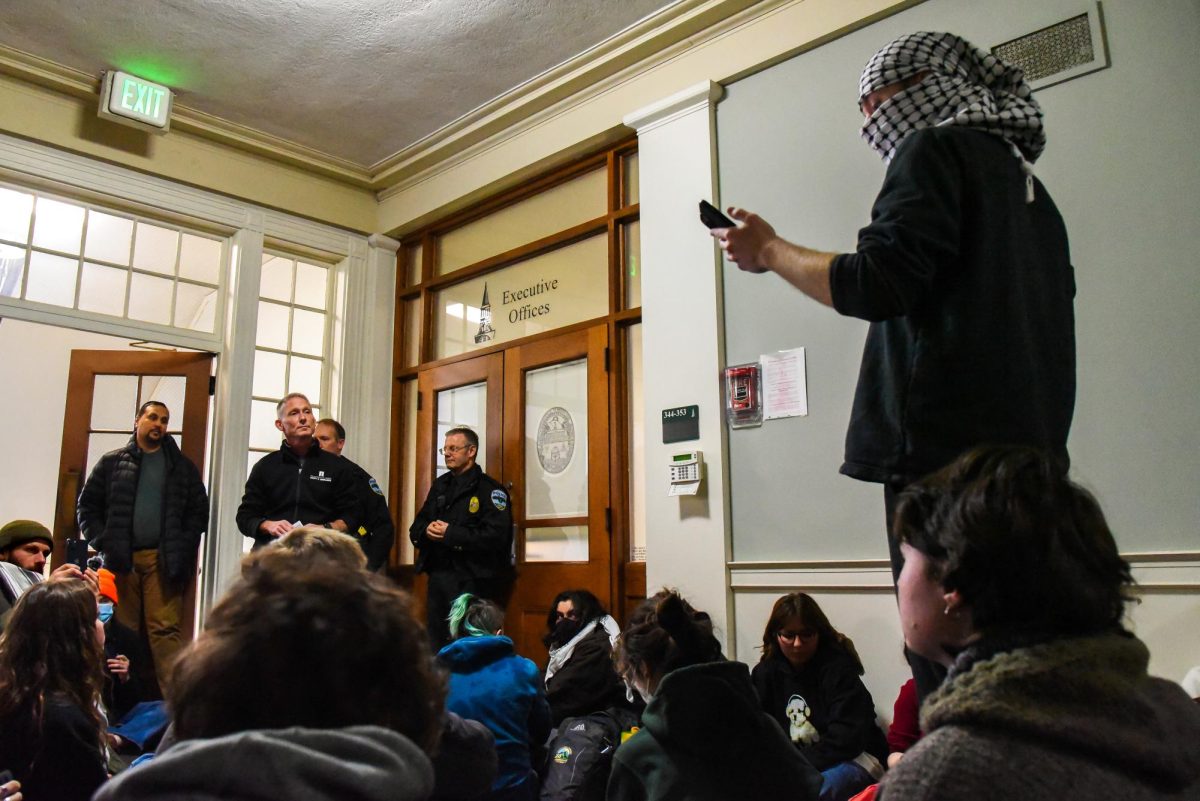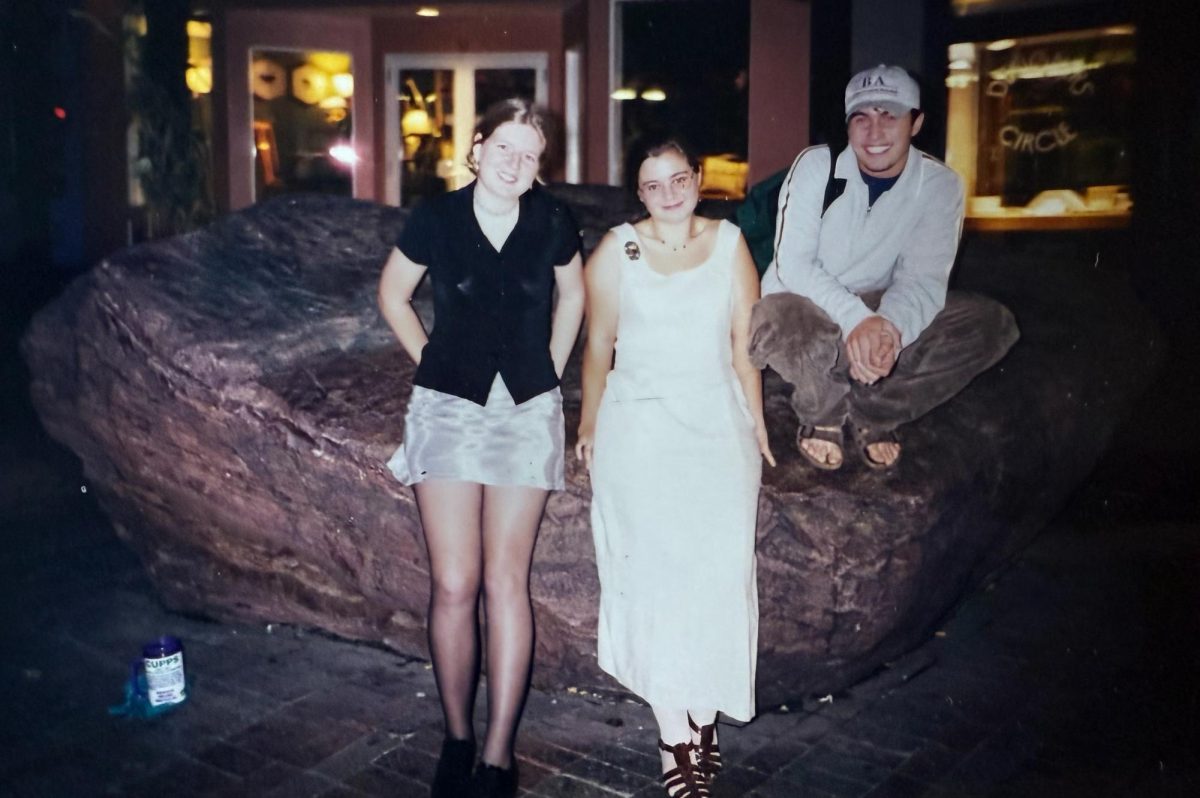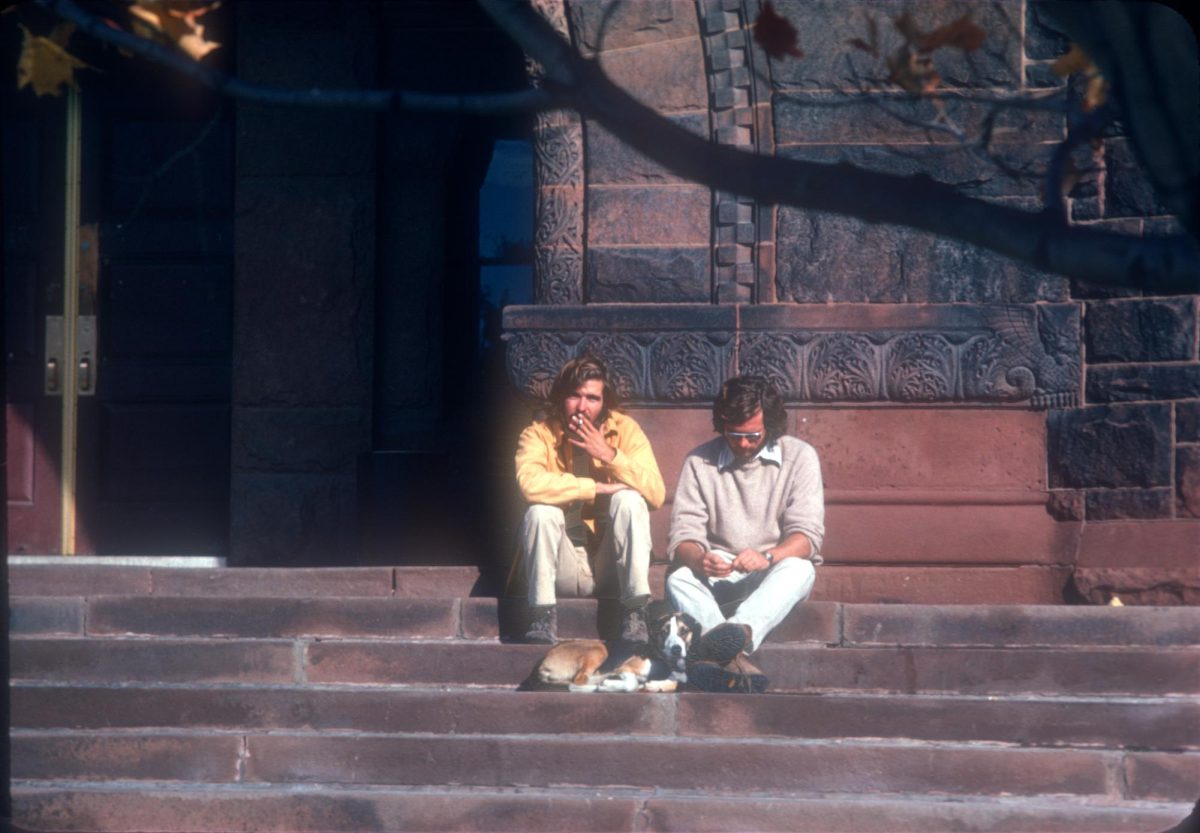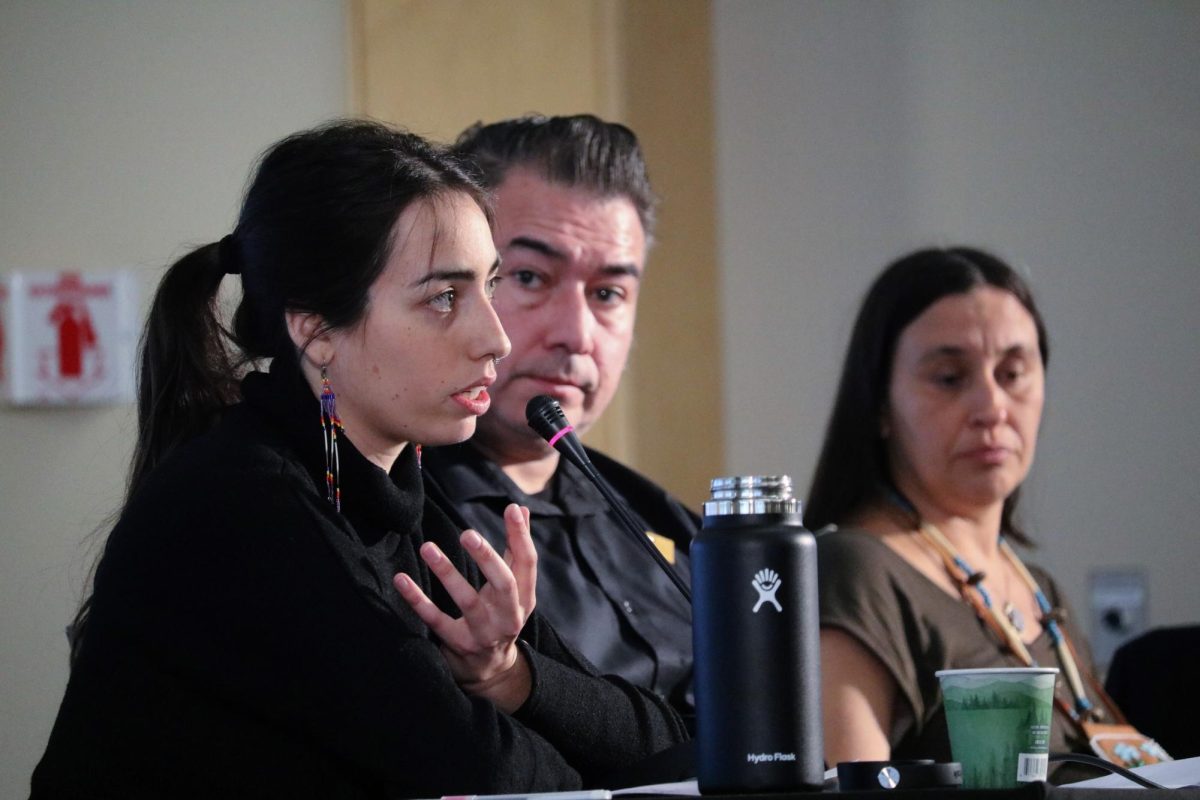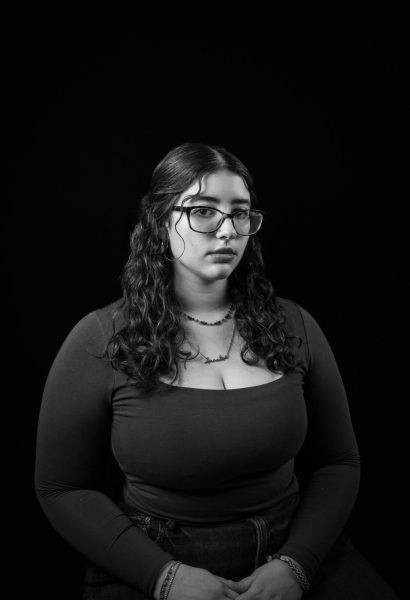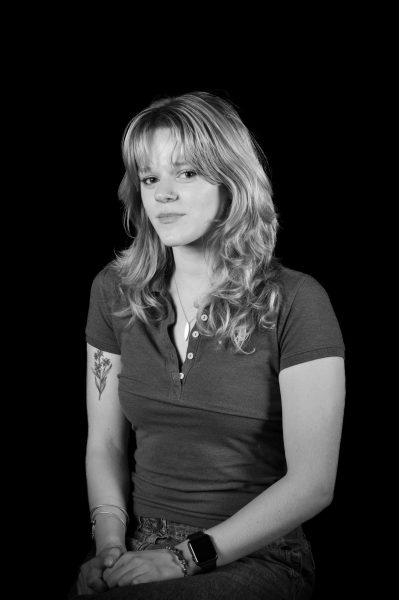Editor’s note: A correction was made to the misspelling of FIRE’s name at 3:05 p.m. on September 30.
Recent protests on campus have spotlighted UVM’s guidelines on free speech, underscoring tensions between individual expression and the institution’s policies.
The UVM Office of Compliance Services defines free expression as rights guaranteed by the First and Fourteenth Amendments of the Constitution of the United States, including rights to freedom of speech, peaceful assembly, petition and association, according to UVM’s Freedom of Expression Policy website.
However, UVM’s free speech guidelines have recently come into question following a federal lawsuit filed against UVM by UVM Students for Justice in Palestine Sept. 9 after the University placed them on interim suspension on May 1.
UVMSJP alleged that the University’s decision to place them on interim suspension violated their due process rights. They also alleged that UVM’s policies concerning on-campus protests allow for the restriction of a number of First Amendment rights, according to the lawsuit.
“UVM likes to appear like they are accepting or welcoming of free speech and debate on campus,” said an anonymous leader of UVMSJP. “But any time that speech in any way threatens their image or, bottom line, their investments, that is when they start cracking down.”
UVM was ranked 233 out of 251 in 2025 for college free speech rankings by the Foundation for Individual Rights and Expression, receiving a rating of “below average,” according to FIRE’s website.
Still, UVM’s administration maintains that they are dedicated to protecting free speech and promoting civil discourse on campus, publishing two new websites at the start of the 2024-2025 school year, Using Your Voice and President’s Initiative on Civil Discourse, to reiterate their emphasis on free speech within established guidelines.
“Freedom of expression—the ability to voice your ideas and viewpoints—is a cornerstone of the university experience. UVM is committed to maintaining an environment where free speech and free expression can thrive,” states UVM’s Using Your Voice website.
However, the University may impose restrictions on free speech beyond the First Amendment if speech causes disruption or threatens the safety and security of the campus, according to UVM’s website.
“About 80% of [UVM’s] policies and operating procedures are about how to do things, not what not to do,” said Michael Schirling, chief safety and compliance officer. “[The policies] are equally or disproportionately designed to give people the tools to do things, and then woven in there are, of course, boundaries.”
Even under the First Amendment, public universities may set and regulate their own guidelines for free speech, said E. Thomas Sullivan, UVM president emeritus and professor of political science.
Sullivan is a leading scholar on the First Amendment and author of the book, “Free Speech Freedoms: From Core Values to Current Debates–Are we in a Crisis of Understanding?”
“On campus, the University has the ability to impose reasonable time, place and manner restrictions,” Schirling said. “But cannot restrict speech simply because the content may be hateful to some, unless that speech is designed to incite unlawful activity or is a direct threat or harassment of a person or persons.”
Many people mistakenly believe that hate speech is not protected by the First Amendment when in fact, it is. An individual has the right to say whatever they want except for four main exceptions, those being defamation, obscenity, intimidation and true threats, Sullivan said.
“As long as it does not disrupt the educational, research or administrative normal functions of the University … you have a right to express yourself,” he said.
UVM policy says that free speech must be expressed in a way that does not disrupt the core activities of the campus, according to UVM’s website.
“[UVMSJP] has had to engage quite a bit with UVM’s free speech guidelines in the past few months,” said the anonymous leader of UVMSJP. “We have done our best to learn about what UVM actually allows and what UVM doesn’t allow that is actually still protected by the First Amendment and other legal statutes.”
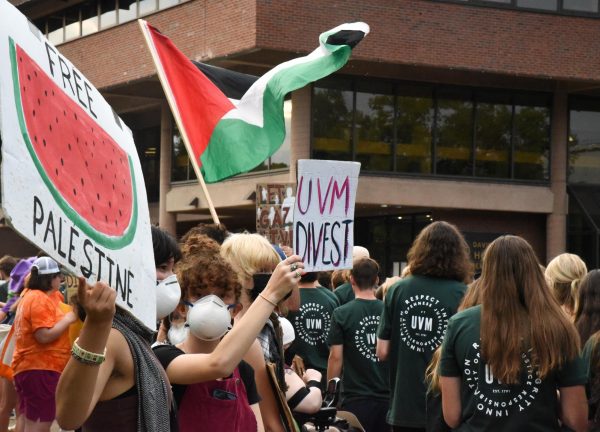
Beyond UVM’s listed guidelines for free speech, it is also against UVM policy for students to wear facial coverings during a demonstration to hide their identity from authority, Schirling said.
“We have warned our demonstrators since April that covering their faces and hiding their identities is a violation of [UVM’s] policies,” Schirling said.
Failing to identify oneself or comply with the directions of University officials, their authorized agents or local police agencies acting in the performance and scope of their duties is a University order offense, according to UVM’s Code of Student Conduct website.
However, there is no explicit mention of facial coverings in the offense listed above.
Some students feel that UVM’s policy on not identifying oneself, which they have verbally extended to include wearing facial coverings, undermines protesters’ ability to protect their own safety, said an anonymous leader of UVMSJP.
“Prohibiting against protesters wearing masks is a policy that allows UVM to identify and retaliate against protesters that threaten their image,” they said. “Bottom line, masks are a very important part of protests, as they protect protesters’ right to organize and speak their minds … without fear of retaliation or suspension.”
Masks and coverings for COVID-19 during demonstrations are still permitted under UVM policy, Schirling said.
“[UVMUS] has consistent planning for teaching ourselves how to deescalate, teaching people to talk to the police, teaching people to talk to the media, to keep both the individual and the people around you safe,” said an anonymous leader of the group. “That’s something we’re really big on.”
UVM’s goal is to address policy violations when they first occur and bring people to compliance as soon as possible, Schirling said.
“When our team first gets wind that there’s going to be a demonstration or protest, the first action is to try to reach out if there’s an organizer,” Schirling said. “And say, ‘Hey, how can we help you do this in a safe way, make sure you’re not harassed by others, and can we give you any advice about how to stay within policy and the law?’”
Before protests occur, leaders of certain activist groups on campus reported that they have received warning emails from UVM, but they are formatted as more of a threat rather than a productive discussion, said an anonymous leader of UVM Union of Students.
“UVM has never actually acted in good faith to attempt to give student protesters a voice,” said the anonymous leader of UVMSJP. “They only ever want to channel protest into pathways that they can more tightly control and regulate.”
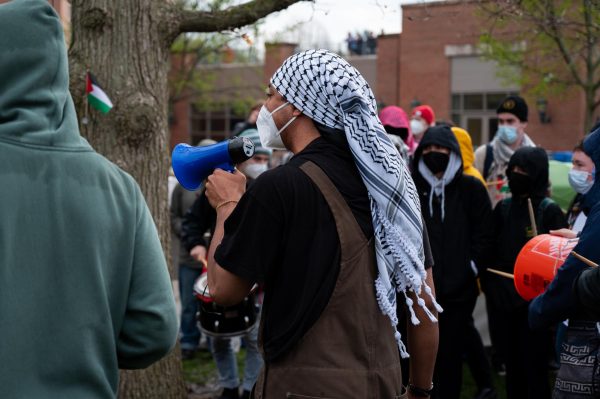
In spring 2024, during UVM students’ encampment for divestment, the ACLU of Vermont sent a letter to leadership at UVM in response to rising police presence at the encampment. The letter urged the University to address demonstrations in ways that further free speech and inquiry instead of restricting it.
“The responsibility of universities and colleges to protect students’ speech, even speech that is disruptive … we urge you to respond to these incidents in ways that further free speech and academic inquiry … rather than criminalize students for civic engagement,” stated the Vermont ACLU’s letter.
Some students feel that UVM’s free speech guidelines are applied inconsistently.
“Once a protest starts to threaten UVM’s image or financial status quo, they’re very quick to crack down on it,” said the anonymous leader of UVMSJP.
Free speech is the theme of UVM’s 2024-25 Presidential Lecture Series, with presentations from various scholars. The next lecture will be held on Oct. 29 by Nadine Strossen, former president of the ACLU.
“There are many ways community members can express themselves,” said Erica Caloiero, vice provost for student affairs. “Inquiry, discussion, advocacy, even protests are all time honored methods of expression at UVM.”


